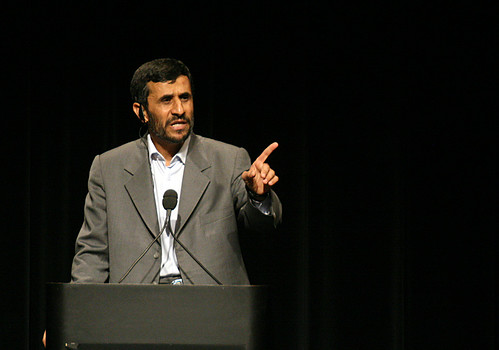Twitter has been receiving numerous plaudits due to Twitter’s role in the media coverage of the Iranian election protests.
Twitter is a jolt of democratisation to journalism.To date, the most salient, powerful example of Twitter's influence has been Iranian protesters using the service (among many other methods) to assemble marches against what they feel has been an unjust election.
There is no question of Twitter's power
Many users have become accustomed to clicking on Twitter when news breaks. There, they can find a sea of reaction, commentary and links to actual articles.
There is an obvious weakness in the rapidity and lack of accountability that a more 'democratic' journalism brings
News that circulates on Twitter, re-tweeted from person to person, can spread quickly - often too quickly for it to be verified. False rumours spread daily on Twitter.
However, it is another aspect of Twitter that is troubling me, the power of Twitter and who it serves. Twitter is less democratic than it appears. Rash declarations proclaiming the unambiguously beneficial value of services like Twitter to the larger discourse are over-simplistic. Reality is more complex.
Let us reconsider the Iran protests and Twitter.
It is hard to say how much twittering is actually going on inside Iran. The tweets circulated by expatriates in the United States tend to be in English -- the Twitter interface does not support the use of Farsi. And though many people may be sending tweets out of Iran, their use inside Iran may be low, some say.
This helps explain the almost uniform opposition to Mahmoud Ahmadinejad on Twitter when he receives strong support in poorer rural Iran. Whilst I welcome greater exposure of Mahmoud Ahmadinejad's regime's human rights abuses, people ought to be aware of the bias of Twitter. In the light of the tidal wave of opposition to Ahmadinejad, Twitter was functioning as medium of propaganda for the U.S. State Department without the requirement of their engagement. A fact underscored by the U.S. State Department urging Twitter to postpone scheduled maintenance that would have temporarily stopped service to Iran during the protests.
Twitter excludes the disadvantaged. Twitter effectively provides a megaphone to those with access to the required media that can afford to invest the time whilst the vast majority of the world cannot afford to have their voices heard.
Reaction to recent events in Latin America provides a further example. In the face of growing investment in American imperialism in the region, it is the geographically remote from the region that tend to pass comment. In the wake of the Honduras coup, for example, the privileged self-interested few who support the coup were disproportionately loud. The majority of Hondurans, those that were to benefit from the ousted Zelaya's progressive reforms, the poor, seldom tweet.
It seems as though the privileged few continue to have the upper hand.
